Beethoven: Symphony No. 9
Gulbenkian Orchestra and Choir / Lawrence Foster
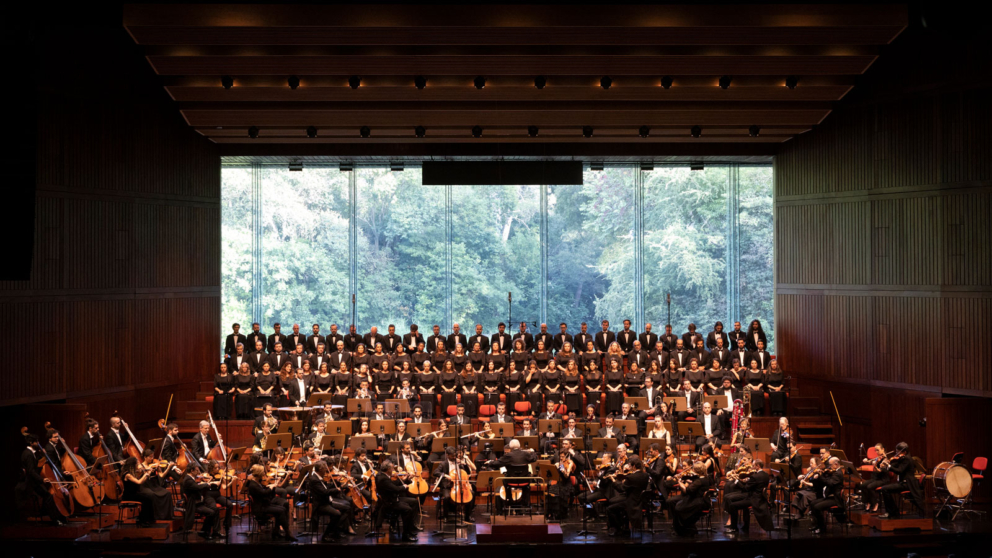
Performers
- Conductor
- Soprano
- Mezzo-soprano
- Tenor
- Bass-Baritone
-
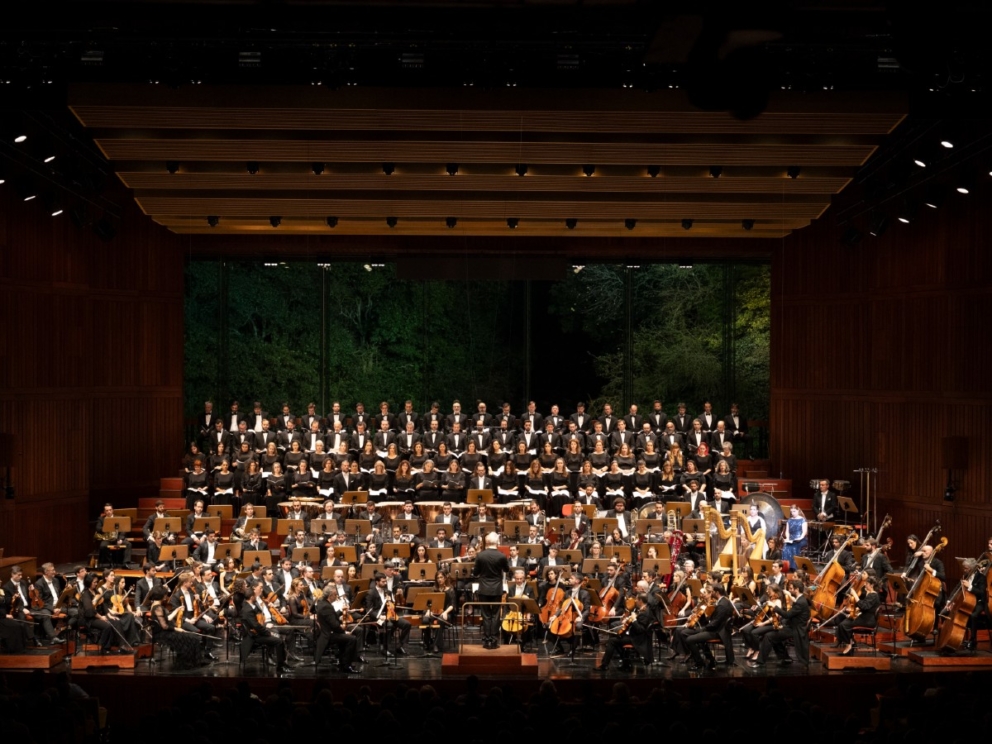
Gulbenkian Choir
Coro Gulbenkian was founded in 1964 by the Calouste Gulbenkian Foundation as a full symphonic body of around 100 singers. The choir joins the Orquestra Gulbenkian and other orchestras to perform Classical, Romantic and Contemporary choral-symphonic repertoire, but can also perform a cappella. It has performed – and often premiered – many 20th century works by Portuguese and international composers.
Coro Gulbenkian has been invited to collaborate with major international orchestras, under the direction of conductors such as Claudio Abbado, Colin Davis, John Nelson, Emmanuel Krivine, Esa-Pekka Salonen, Frans Brüggen, Franz Welser-Möst, Gerd Albrecht, Michael Gielen, Michael Tilson Thomas, Rafael Frübeck de Burgos, René Jacobs and Leonard Slatkin, among others.
Besides its regular season of concerts in Lisbon and frequent national tours, Coro Gulbenkian has repeatedly toured Argentina, Belgium, Brazil, Canada, Denmark, France, Germany, Hungary, India, Iraq, Israel, Italy, Japan, Macao, Malta, Monaco, Netherlands, Spain, the United Kingdom, the United States of America and Uruguay.
Coro Gulbenkian has recorded extensively for Philips, Deutsche Grammophon, Erato, Cascavelle, Musifrance, as well as FNAC-Music, performing a wide range of repertoire, from Early-Renaissance polyphony to Xenakis. Several of these albums received international awards.
Michel Corboz was the Principal Conductor between 1969 and 2019. Jorge Matta and Inês Tavares Lopes are currently the Associate and Assistant conductors, respectively.
-
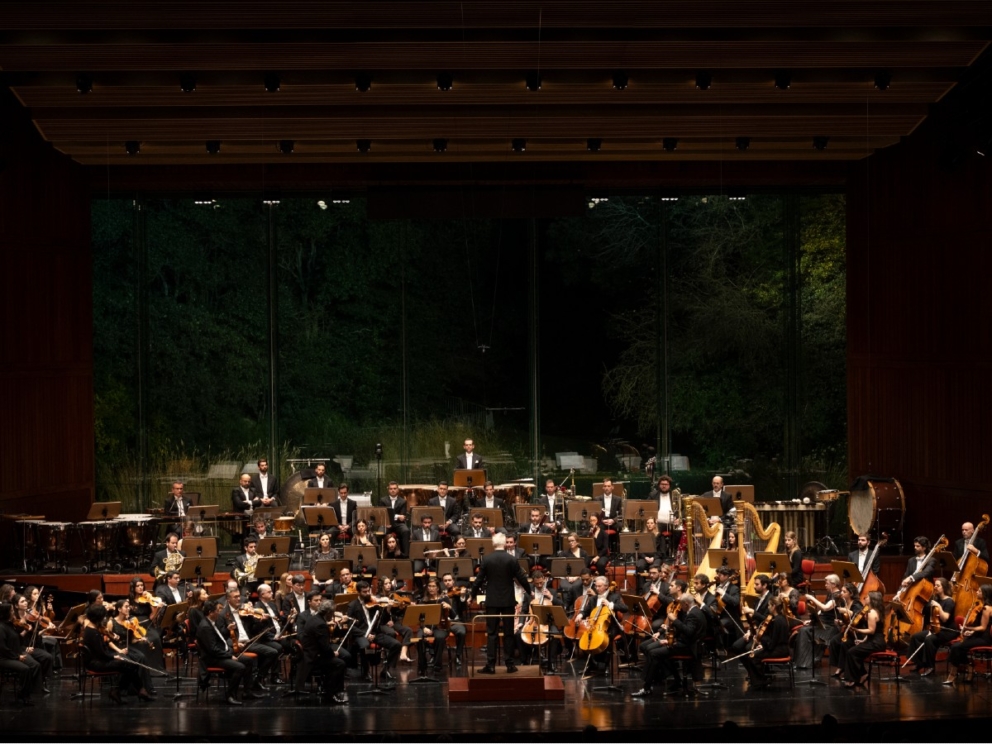
Gulbenkian Orchestra
In 1962, the Calouste Gulbenkian Foundation decided to establish a permanent orchestral ensemble. Originally with only twelve musicians (strings and continuo) it was named “Orquestra de Câmara Gulbenkian”. This collective was successively enlarged and today the “Orquestra Gulbenkian” (the name it has adopted since 1971) has a permanent body of sixty instrumentalists, a number that can be expanded depending on the repertoire.
This structure allows the Gulbenkian Orchestra to interpret works from the Baroque and Classical periods, a significant part of 19th century orchestral literature and much of the music of the 20th century, including works belonging to the current repertoire of the traditional symphonic orchestras. In each season, the orchestra performs on a regular series of concerts at the Gulbenkian Grand Auditorium in Lisbon, where it has had the opportunity of working together with some of leading names of the world of music (conductors and soloists). It has also performed on numerous locations all over Portugal, in an effort to decentralize music and culture.
The orchestra has been constantly expanding its activities in the international level, performing in Europe, Asia Africa, and the Americas. In the recording field, Orquestra Gulbenkian is associated to labels as Philips, Deutsche Grammophon, Hyperion, Teldec, Erato, Adès, Nimbus, Lyrinx, Naïve and Pentatone, among others, and this activity was recognized with several international prizes.
-
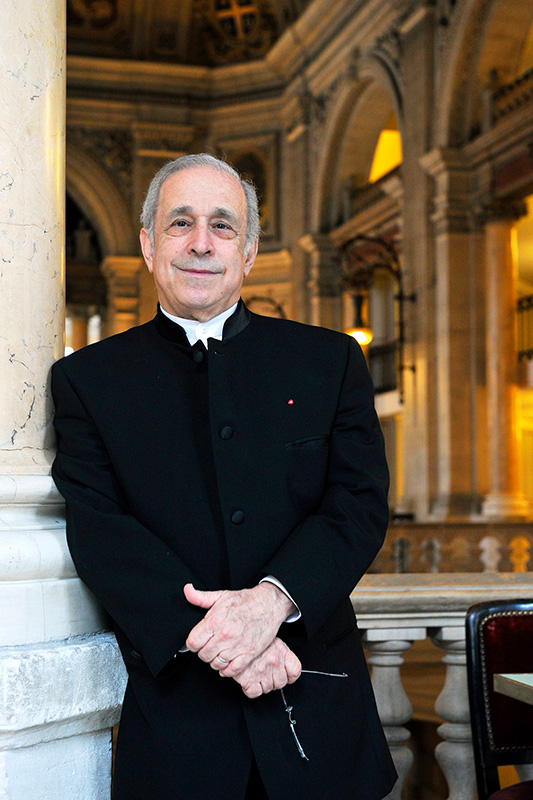
Lawrence Foster
Conductor
Lawrence Foster is known for his exhilarating and expressive performances in a wide range of music and enjoys a major career spanning the US, Europe and Asia. As a champion of the music of Enescu, his interpretations are renowned for their faithfulness to the score: “Lawrence Foster seems to have been put on this planet to conduct Enescu’s music. He is clearly a true believer and he understands every technical nuance and every expressive twist and turn” – The Telegraph. Following his tenure as Music Director of Opéra de Marseille for nine years and Artistic and Chief Conductor of Polish National Radio Symphony Orchestra for four years, Lawrence Foster is invited to conduct an exciting variety of programmes. Lawrence Foster is a long-standing and iconic personality of classical music world. Awarded with the Koussevitzky Prize at Tanglewood in 1966, he became assistant conductor of Zubin Mehta at Los Angeles Philharmonic and chief Guest conductor of Royal Philharmonic Orchestra in 1969. Since then, he has been music director of Houston Symphony, Orchestre Philharmonique de Monte-Carlo, Orchestre de Chambre de Lausanne, Orquestra Simfònica de Barcelona i Nacional de Catalunya, Gulbenkian Orchestra, Orchestre Philharmonique de Montpellier and Aspen Music Festival and School amongst many other positions. Foster is particularly appreciated as an interpreter of the works of George Enescu and has made a comprehensive survey of commercial recordings of Enescu’s music. He served as artistic director of the George Enescu Festival from 1998 to 2001. In 2003, Foster was decorated by the Romanian President for services to Romanian music. Foster has recorded extensively for Pentatone including Schumann’s symphonies, orchestral works by Kodály, Bartók and Ligeti, piano and violin concertos by Bruch, Korngold, Rachmaninov, Grieg and Chopin with various soloists, and operas such as Othello, Madame Butterfly, Fledermaus and Girl of the Golden West. His recording of Enescu’s Oedipe (EMI) was awarded the Grand Prix du Disque from the Académie Charles Cros in France. -
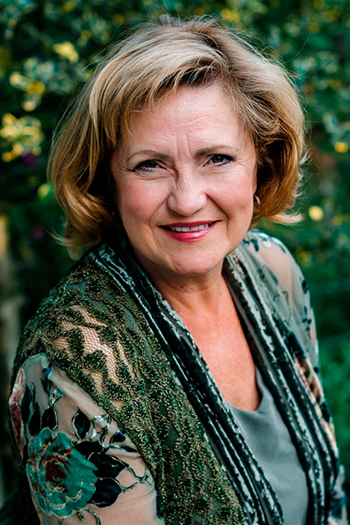
Laura Aikin
Soprano
Possessing a range of over three octaves, the repertoire of world-renowned American soprano Laura Aikin embraces works from the Baroque to the contemporary and makes her a most welcome artist the world’s great opera houses and concert halls. She began her career as a member of the ensemble at the Staatsoper Unter den Linden Berlin (1992-98) under the artistic direction of Daniel Barenboim where she performed more than 300 times in major roles like Lulu, Königin der Nacht, Zerbinetta, Amenaide (Tancredi), Sophie, Adele as well as the title role in Zaide.
Laura Aikin is a regular guest at the leading opera houses worldwide such as the Vienna State Opera, La Scala Milano, Bavarian State Opera, Opernhaus Zurich, Netherlands Opera, Opéra National de Paris, Semperoper Dresden, Gran Teatro del Liceu Barcelona, Opera Frankfurt, Chicago Lyric Opera, Santa Fe Opera, San Francisco Opera and Metropolitan Opera New York.
In addition to her numerous concert appearances at the Salzburg Festival since 1995, the artist appeared among others as Königin der Nacht, in the world premiere of Henze's opera l’Upupa (Bad’iat), as Blondchen and Konstanze (Die Entführung aus dem Serail) and was highly acclaimed by both audience and press for her interpretation of Marie in Zimmermann’s Die Soldaten in 2012 and for Birtwistle‘s Gawain in 2013.
Being also a sought-after concert singer, Laura Aikin performs with orchestras such as the Berlin, Munich and Vienna Philharmonic, the Bavarian Radio Symphony Orchestra, the Chicago and Vienna Symphonic, the Cleveland Orchestra, the BBC Symphony Orchestra, the WDR, SWR and MDR Radio Symphony Orchestras as well as with the Ensemble Intercontemporain, Les Arts Florissants, Concerto Köln and Concentus Musicus Wien.
She performed with leading conductors as Claudio Abbado, Alain Altinoglou, Daniel Barenboim, Pierre Boulez, Martin Brabbins, Sylvain Cambreling, William Christie, Christoph von Dohnányi, Iván Fischer, Mikko Franck, Daniele Gatti, Michael Gielen, Nikolaus Harnoncourt, Manfred Honeck, Jakub Hrůša, René Jacobs, Fabio Luisi, Kent Nagano, Zubin Mehta, Cornelius Meister, Ingo Metzmacher, Riccardo Muti, Helmuth Rilling, Donald Runnicles, Giuseppe Sinopoli, Michael Tilson Thomas and Franz Welser-Möst.
Operatic successes of the past years have included her first Giunia (Lucio Silla) at Gran Teatro del Liceu in Barcelona, Lucia (Lucia di Lammermoor) at the Opéra de Montpellier, Lulu in Paris and at the Lyon Opera, La Scala and the Wiener Festwochen in the new Peter Stein production, Rossini’s Semiramide in Naples, Diana (Arbore di Diana) in Barcelona, Marguérite (Les Huguenots) in Strassburg and Marilyn Monroe in the première of De Raaff’s opera Waiting for Miss Monroe at Netherlands Opera. Further highlights include Strauss´ Aithra (Die ägyptische Helena) as well as Mozart´s Don Giovanni (Donna Anna) at the Deutsche Oper Berlin, Schoenberg´s Pierrot Lunaire at the Frankfurt Opera, Zimmermann´s Die Soldaten at La Scala, Morton Feldman´s opera Neither at the Berlin State Opera and at the Ruhrtriennale as well as Mozart´s Die Entführung aus dem Serail at the Hamburg State Opera.
Recent highlights include the role of Helena in Manfred Trojahn's Orest at the Vienna State Opera, which was revived at the Haus am Ring in autumn 2019. The 2021-2022 season brought Shostakovich's The Nose at the Bavarian State Opera, as well as the world premiere of Stefan Wirth's Girl with a Pearl Earring at Zurich Opera, and a concert version of Rosenkavalier conducted by Lawrence Foster, where Laura Aikin was heard for the first time as the Marschallin. In the automn of 2022 Laura Aikin can be heard as Mrs Grose in a production of Britten's The Turn of the Screw conducted by Iván Fischer in Budapest and Vicenza, and she returns to the Vienna State Opera as Rosalinde in the traditional Fledermaus at the turn of the year.
Her many acclaimed recordings include Beethoven's Christus am Ölberge with Daniel Barenboim and the Chicago Symphony Orchestra, Schoenberg's Die Jakobsleiter with the Südwestfunk Symphony Orchestra, Respighi's La campana sommersa (Montpellier Opera), DVDs of Lulu (Opernhaus Zurich), Henze´s l’Upupa and Die Entführung aus dem Serail (both from the Salzburg Festival) and Dialogues des Carmélites with Riccardo Muti (La Scala), a solo recording of Songs and Cycles by Rorem with pianist Donald Sulzen (Orfeo) as well as Beethoven’s Christus am Ölberge and his Missa solemnis - both under the baton of Nikolaus Harnoncourt (Sony Music). Most recently, a widely acclaimed recording of Johann Strauss’ Die Fledermaus with Laura Aikin as Rosalinde appeared (Pentatone) – recorded with the NDR Radio Philharmonic Orchestra under the direction of Lawrence Foster.
In addition to her concert and opera activities, Laura Aikin is an outstanding voice teacher. From autumn 2022, Laura Aikin will hold a professorship in singing at the Vienna University of Music and Performing Arts Vienna.
-
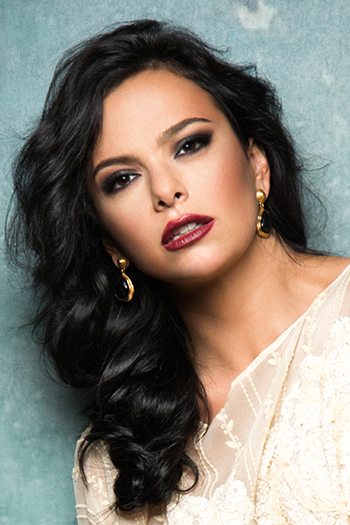
Roxana Constantinescu
Mezzo-Soprano
Roxana Constantinescu, who started her career as a member of the Vienna Staatsoper ensemble, has become one of today's foremost vocal artists in concert and opera in an exceptionally wide range of repertoire. Recent concert engagements include Rossini’s Stabat Mater at Théâtre des Champs-Elysées, Beethoven’s Missa Solemnis at the Tokyo Opera City Concert Hall; appearances with the Internationale Bachakademie Stuttgart and Hans-Christoph Rademann at the Walt Disney Hall, Princeton and Fort Lauderdale under the baton of Helmuth Rilling. Roxana has made debuts at the Konzerthaus Berlin with Bach’s St. John Passion and at the Verbier Festival in Verdi’s Falstaff. She has made highly acclaimed appearances at Zurich Opera, Teatro la Fenice, the Israeli Opera, Opéra Royal de Versailles and Teatro dell’Opera di Roma, Wiener Staatsoper, Deutsche Oper Berlin and the New National Theatre Tokyo, LA Opera, Theater an der Wien, Opera de Oviedo and Théâtre du Capitole Toulouse. Recently she celebrated her debut at the Opéra de Paris as Bradamante in Händel’s Alcina. She also performed the title role in Vivaldi’s Judith Triumphans at the Greek National Opera. With the Dresden Philharmonic under Marek Janowski, she performed and recorded Wagner's Der Ring des Nibelungen and Cavalleria Rusticana. Roxana Constantinescu has appeared with some of the foremost conductors of our time, including Seiji Ozawa, Pierre Boulez, Riccardo Muti, Fabio Luisi, James Conlon, Helmuth Rilling, Gustavo Dudamel, Kirill Petrenko, Marek Janowski, Sir Neville Marriner, Yannick Nézet-Séguin, Cristian Măcelaru, Bertrand de Billy, Franz Welser-Möst, and Manfred Honeck. She has performed with the Chicago Symphony Orchestra, Vienna Philharmonic, LA Phil, Munich Philharmonic, Dresden Philharmonic, Toronto Symphony Orchestra, Bavarian Radio Symphony Orchestra, WDR Symphony Orchestra Cologne, Seattle Symphony Orchestra and Stuttgart Radio Symphony Orchestra. Roxana is also an accomplished art song recitalist, having given recitals at Carnegie Hall, Wigmore Hall, Musikverein Vienna, Abbaye de Lessay and Goethe’s House. She has recorded for BIS Records, PentaTone Music, Hänssler Classic, OEHMS Classics, SWR, CSO Resound, Artmode Records, Weltbild and Carus Verlag. Her CD recording of Stravinsky’s Pulcinella under the baton of Pierre Boulez was nominated for a Grammy Award.
-
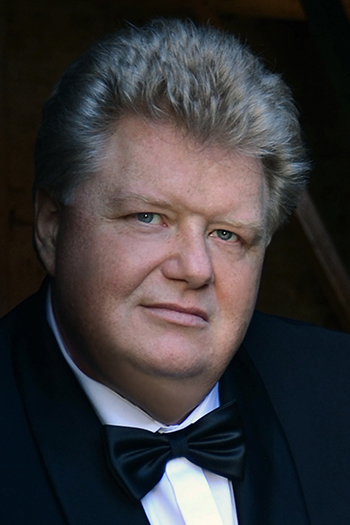
Christian Elsner
Tenor
Christian Elsner, born in Freiburg im Breisgau, has been an internationally sought-after soloist for many years, and now also passionately enjoys passing on his experience to the next generation as a professor of singing. Full of gratitude, he often recalls his vocal studies with Prof. Martin Gründler.
In the Lied class of Dietrich Fischer-Dieskau the tenor deepened his passion for the interpretation of the art song, which is still very close to his heart. He has given recitals with accompanists such as Hartmut Höll, Gerold Huber and Burkhard Kehring in Dresden, Munich, Cologne, Schwetzingen, Brussels, Paris and at the Schubertiade Feldkirch.
Among his numerous performances in all the major centers of classical music such as the Philharmonie Berlin, the Vienna Musikverein, Carnegie Hall New York, La Scala Milan or Suntory Hall Tokyo are Haydn's The Creation under Zubin Mehta, Dvořák's Stabat Mater under Mariss Jansons, Mahler's Song of the Earth under Yannick Nézet-Séguin, Franz Schmidt's Das Buch mit sieben Siegeln under Manfred Honeck or Beethoven's 9th Symphony. Symphony as part of a world tour with the Berlin Philharmonic under Sir Simon Rattle are among his most personally valuable musical highlights.
Particularly formative has been the longstanding collaboration with Marek Janowski, under whose direction Christian Elsner has sung Parsifal, Loge and Mime, as well as the Witch in Humperdinck's Hansel and Gretel and Florestan in Beethoven's Fidelio. Richard Wagner's operas became the focus of his operatic career through performances as Siegmund and as Parsifal at the German National Theater in Weimar, the Staatstheater in Kassel, the Semperoper in Dresden, the Vienna State Opera and the Teatro Real in Madrid. Inspired by this, the artist most recently published a book for children, called Lennie and the Ring of the Nibelung.
Recently, Christian Elsner could be heard in a Missa Solemnis under Marek Janowski in Dresden, in a recital with Hartmut Höll in Karlsruhe, and as Siegmund in concert performances of Wagner's Walküre in Porto and Stavanger.
In the 2022/23 season, Christian Elsner will appear as Loge at the Dresden Philharmonic, return to the Vienna Musikverein with Franz Schmidt's Book with the seven Seals, and sing in Verdi's Requiem in Groningen. Beethoven's 9th Symphony in Lisbon and further concerts in Mainz and Kaiserslautern as well as appearances at the Théâtre du Capitole Toulouse as Siegmund and Loge are also on the program.
-
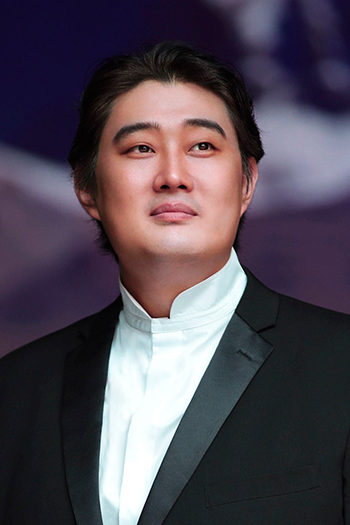
Shenyang
Bass-Baritone
As Winner of the 2007 BBC Cardiff Singer of the World Competition, Shenyang came swiftly to international attention with a string of high-profile debuts ensuing including at the Metropolitan Opera, Glyndebourne Festival, Bayerische Staatsoper, Opernhaus Zürich and Washington National Opera. While his early career focused principally on Rossini, Mozart and Handel roles, recent seasons have seen a shift into more dramatic repertoire with debuts as Don Pizarro (Fidelio) with Los Angeles Philharmonic Orchestra under Gustavo Dudamel, Jochanaan (Salome) with Polish National Radio Symphony Orchestra and Alexander Liebreich, Gunther (Götterdämmerung) with Hong Kong Philharmonic Orchestra under Jaap van Zweden (released on Naxos), Kurwenal (Tristan und Isolde) at the Glyndebourne Festival and BBC Proms with Robin Ticciati, and Klingsor (Parsifal) at La Monnaie under Alain Altinoglu.
The concert stage has always played an important role in this versatile artist’s seasons with recent highlights including Berlioz’s Roméo et Juliette with Berliner Philharmoniker/Daniel Harding, Stravinsky’s Oedipus Rex (Tiresias) with Concertgebouworkest/Santtu-Matias Rouvali, Beethoven’s Symphony No.9 with Philadelphia Orchestra/Yannick Nézet-Séguin and New York Philharmonic/Alan Gilbert, Mussorgsky’s Songs of Dances and Death with Helsinki Philharmonic/Klaus Mäkelä, Brahms’ Ein deutsches Requiem with Boston Symphony Orchestra/Andris Nelsons and BBC Scottish Symphony Orchestra/Ilan Volkov, and Mahler’s Symphony No.8 with Nederlands Philharmonisch Orkest/Marc Albrecht.
In 2022/23, Shenyang joins Deutsches Symphonie-Orchester Berlin as Kurwenal and Tonhalle-Orchester Zürich as Don Pizarro under their respective Music Directors Robin Ticciati and Paavo Järvi, while Verdi’s Messa da Requiem marks a debut with both Orchestre National de Lyon under Simone Young and Bergen Philharmonic Orchestra under Ed Gardner. He joins the line-up for Beethoven’s Symphony No.9 with Wiener Konzerthausorchester under Klaus Mäkelä and in the season opening concerts of the Hong Kong Philharmonic Orchestra with Jaap van Zweden.
A strong champion of the vocal treasures of his homeland, Shenyang created the title role in Tan Dun’s Buddha Passion at Dresdner Musikfestspiele with subsequent appearances with Los Angeles Philharmonic and Melbourne Symphony orchestras and, in the current season, with London Philharmonic Orchestra and at Müpa Budapest under the composer’s own baton. He performed and recorded Xiaogang Ye’s orchestral song cycle The Song of the Earth for Deutsche Grammophon under the baton of Long Yu.
A recipient of the Alice Tully Vocal Arts Award for his commitment to Lieder, Shenyang has performed around the world in recital and presents his new programme Variations of Jade – The Journey of Tang Poetry at Wigmore Hall this season, as well as at the National Centre of Performing Arts Beijing and the Macau International Music Festival. On disc, he features on A Lost World, a showcase of Schubert songs and duets together with soprano Susanna Phillips and pianist Brian Zeger (released on Delos).
Programme
Ludwig van Beethoven
Symphony No. 9, in D minor, op. 125
1. Allegro ma non troppo, un poco maestoso
2. Scherzo: Molto vivace – Presto
3. Adagio molto e cantabile
4- Presto – Allegro assai – O Freunde, nicht diese Töne! – Allegro assai